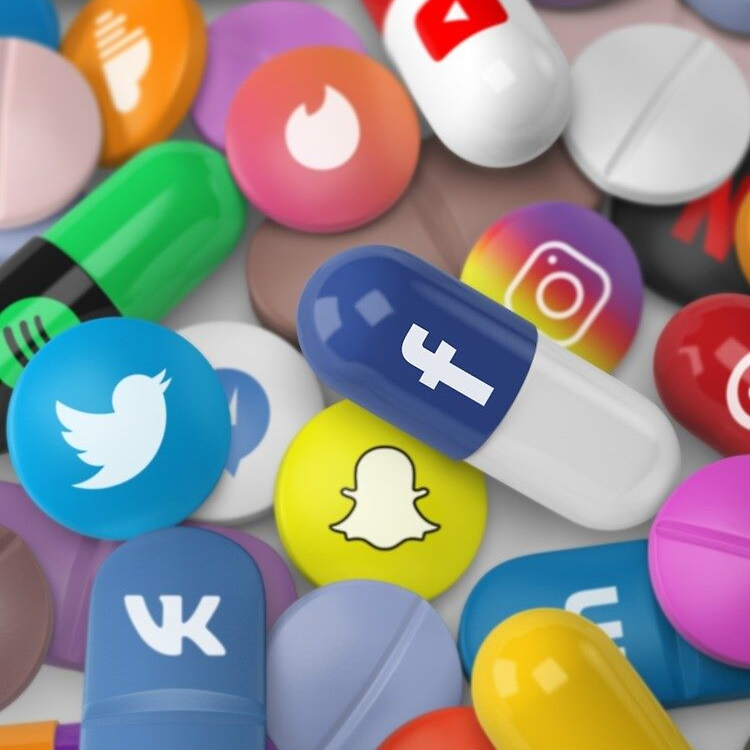Leveraging the Power of Social Media in the Pharmaceutical Industry's Digital Marketing Strategy
Saturday, 22 July,2023
Introduction
In today's digital age, social media has transformed the way businesses engage with their audience. The pharmaceutical industry, known for its strict regulations and conservative approach, has also recognized the value of social media platforms in reaching and engaging with key stakeholders. By incorporating social media into their digital marketing strategies, pharmaceutical companies can enhance brand awareness, drive patient education, foster healthcare professional collaborations, and gather valuable insights. This blog explores the pivotal role of social media in the pharmaceutical industry's digital marketing strategy, highlighting its benefits, challenges, and best practices.
The Power of Social Media in Pharma Digital Marketing
- Building Brand Awareness and Reputation
Social media platforms provide pharmaceutical companies with a powerful channel to build brand awareness and shape their reputation. By sharing engaging content, industry news, and updates, pharmaceutical companies can increase their visibility and establish thought leadership. Through carefully curated social media campaigns, companies can reach a broader audience, including patients, healthcare professionals, and advocacy groups, thus improving brand recognition and credibility.
- Educating Patients and Raising Health Awareness
Social media platforms offer a unique opportunity for pharmaceutical companies to educate patients about diseases, treatment options, and overall health and wellness. By sharing accurate and reliable information in an accessible format, companies can empower patients to make informed decisions about their health. Additionally, social media campaigns focused on disease awareness can help destigmatize certain conditions and encourage patients to seek timely medical attention.
- Facilitating Healthcare Professional Collaboration
Social media serves as a powerful networking tool for healthcare professionals, enabling collaboration and knowledge sharing. Pharmaceutical companies can utilize social media platforms to connect with healthcare professionals, including physicians, pharmacists, and researchers. By sharing clinical data, research findings, and educational resources, pharmaceutical companies can foster meaningful collaborations and build trust among healthcare professionals.
- Gathering Valuable Insights and Feedback
Social media platforms provide pharmaceutical companies with real-time access to feedback and insights from patients and healthcare professionals. By monitoring discussions, comments, and direct messages, companies can gain valuable insights into patient needs, concerns, and perceptions about their products and services. This data can inform decision-making processes, product development, and marketing strategies, ultimately leading to more patient-centric solutions.
Challenges in Social Media Marketing for Pharma
While social media offers immense opportunities, the pharmaceutical industry faces unique challenges when implementing social media strategies:
- Regulatory Compliance
The pharmaceutical industry operates under stringent regulatory guidelines to protect patient safety and ensure ethical marketing practices. Adhering to these regulations while effectively engaging on social media platforms requires careful planning and adherence to specific guidelines, including proper disclosure of product information, fair balance in promotional content, and strict monitoring of adverse event reporting.
- Data Privacy and Security
Pharmaceutical companies must prioritize patient data privacy and adhere to relevant data protection regulations. Handling patient data on social media platforms requires robust security measures and clear policies to safeguard sensitive information. Companies must establish strict guidelines to ensure that patient privacy is protected when engaging with users on social media.
- Managing Online Reputation
Social media amplifies both positive and negative feedback, making online reputation management critical for pharmaceutical companies. Negative comments or misinformation can quickly spread, potentially impacting brand perception. Companies need effective strategies to proactively address concerns, respond to queries, and engage with users in a professional and timely manner.
Best Practices for Social Media Marketing in Pharma
To effectively leverage social media in the pharmaceutical industry's digital marketing strategy, the following best practices should be considered:
- Compliance and Regulatory Knowledge
Pharmaceutical companies must ensure their social media activities align with regulatory guidelines and compliance requirements. Internal training and robust processes should be established to ensure proper disclosure, fair balance, and appropriate handling of adverse event reporting.
- Content Strategy and Engagement
Develop a well-defined content strategy that aligns with the target audience's interests and needs. Create engaging and educational content that provides value to patients, healthcare professionals, and other stakeholders. Actively engage with users, respond to inquiries promptly, and foster meaningful discussions to build trust and credibility.
- Thought Leadership and Collaboration
Position the company as a thought leader in the industry by sharing informative content, research updates, and expert opinions. Collaborate with healthcare professionals, patient advocacy groups, and influencers to co-create content and enhance credibility.
- Data Analysis and Insights
Leverage social media analytics tools to gain insights into user behavior, preferences, and sentiment. Analyze data to identify trends, understand audience demographics, and refine content and engagement strategies accordingly.
- Risk Management and Crisis Communication
Develop a robust risk management strategy to handle potential crises or negative feedback on social media. Establish clear protocols for addressing adverse events, product recalls, or misinformation, ensuring timely and accurate responses to mitigate any reputational damage.
Conclusion
Social media platforms have emerged as powerful tools for pharmaceutical companies to enhance their digital marketing strategies. By embracing social media, pharmaceutical companies can build brand awareness, educate patients, foster collaborations with healthcare professionals, and gather valuable insights. While challenges related to regulatory compliance, data privacy, and reputation management exist, adherence to best practices and continuous monitoring can mitigate these risks. As the digital landscape continues to evolve, incorporating social media into the pharmaceutical industry's digital marketing strategy will play a crucial role in achieving patient-centric communication, improved healthcare outcomes, and enhanced stakeholder engagement.
